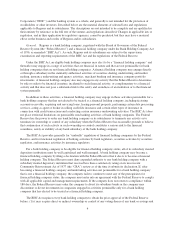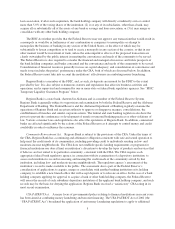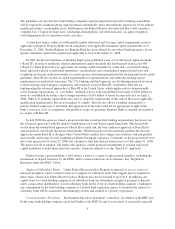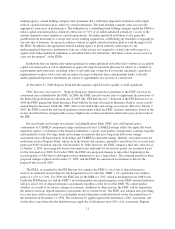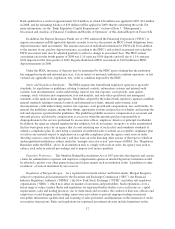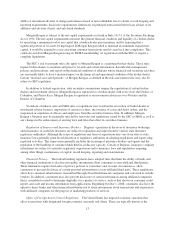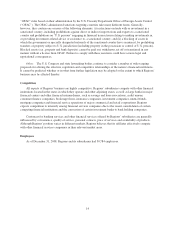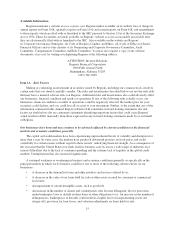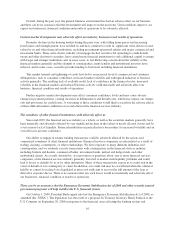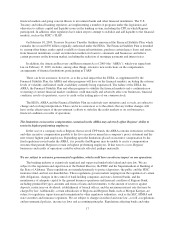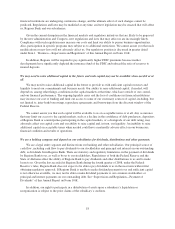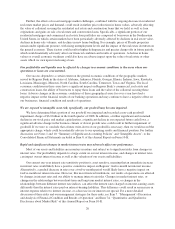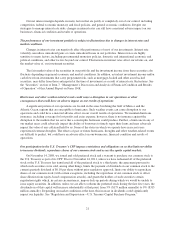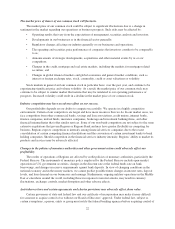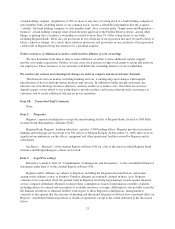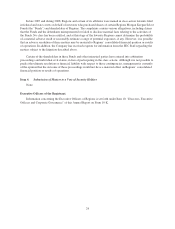Regions Bank 2008 Annual Report Download - page 24
Download and view the complete annual report
Please find page 24 of the 2008 Regions Bank annual report below. You can navigate through the pages in the report by either clicking on the pages listed below, or by using the keyword search tool below to find specific information within the annual report.“OFAC” rules based on their administration by the U.S. Treasury Department Office of Foreign Assets Control
(“OFAC”). The OFAC-administered sanctions targeting countries take many different forms. Generally,
however, they contain one or more of the following elements: (i) restrictions on trade with or investment in a
sanctioned country, including prohibitions against direct or indirect imports from and exports to a sanctioned
country and prohibitions on “U.S. persons” engaging in financial transactions relating to making investments in,
or providing investment-related advice or assistance to, a sanctioned country; and (ii) a blocking of assets in
which the government or specially designated nationals of the sanctioned country have an interest, by prohibiting
transfers of property subject to U.S. jurisdiction (including property in the possession or control of U.S. persons).
Blocked assets (e.g., property and bank deposits) cannot be paid out, withdrawn, set off or transferred in any
manner without a license from OFAC. Failure to comply with these sanctions could have serious legal and
reputational consequences.
Other. The U.S. Congress and state lawmaking bodies continue to consider a number of wide-ranging
proposals for altering the structure, regulation and competitive relationships of the nation’s financial institutions.
It cannot be predicted whether or in what form further legislation may be adopted or the extent to which Regions’
business may be affected thereby.
Competition
All aspects of Regions’ business are highly competitive. Regions’ subsidiaries compete with other financial
institutions located in the states in which they operate and other adjoining states, as well as large banks in major
financial centers and other financial intermediaries, such as savings and loan associations, credit unions,
consumer finance companies, brokerage firms, insurance companies, investment companies, mutual funds,
mortgage companies and financial service operations of major commercial and retail corporations. Regions
expects competition to intensify among financial services companies due to the recent consolidation of certain
competing financial institutions and the conversion of certain investment banks to bank holding companies.
Customers for banking services and other financial services offered by Regions’ subsidiaries are generally
influenced by convenience, quality of service, personal contacts, price of services and availability of products.
Although Regions’ position varies in different markets, Regions believes that its affiliates effectively compete
with other financial services companies in their relevant market areas.
Employees
As of December 31, 2008, Regions and its subsidiaries had 30,784 employees.
14


